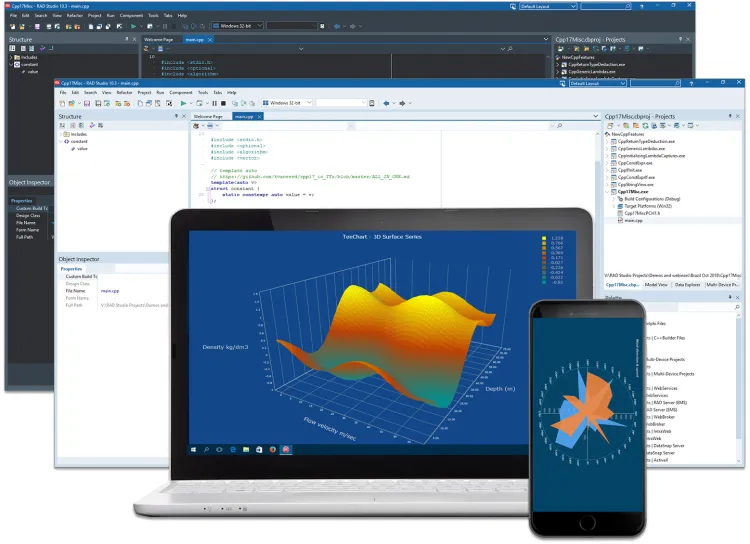
Desktop development with C++ has been around for decades and remains a popular choice for building high-performance, native applications. However, the landscape of desktop development has changed dramatically in recent years, with new technologies, tools, and frameworks emerging to challenge traditional approaches.
In this blog post, we’ll explore the pros and cons of desktop development with C++, including its advantages in terms of performance, reliability, and control, as well as its challenges such as the steep learning curve and the potential for security vulnerabilities. We’ll also discuss best practices for desktop development with C++, such as using modern C++ features, leveraging cross-platform libraries, and adopting a test-driven development approach.
Additionally, we’ll cover how desktop development with C++ fits into the broader software development ecosystem, including trends in web and mobile development, and how developers can balance the advantages of C++ with the need to stay current with emerging technologies.
Whether you’re a seasoned C++ developer or just getting started with desktop development, this blog post will provide valuable insights into how to make the most of this powerful programming language in building modern, robust applications.
Desktop development with C++ is the process of building software applications that run natively on desktop operating systems like Windows, macOS, and Linux using the C++ programming language. C++ is a popular choice for desktop development due to its performance, memory management capabilities, and low-level control over system resources. However, desktop development with C++ can be challenging, as it requires a solid understanding of system architecture, complex data structures, and advanced programming concepts.
In recent years, the landscape of desktop development has shifted, with new technologies and frameworks emerging that offer alternatives to traditional C++ development. These alternatives include web-based technologies like Electron, which allow developers to build desktop applications using web technologies like HTML, CSS, and JavaScript, and cross-platform frameworks like Qt, which provide a higher-level abstraction over system resources.
Despite these alternatives, C++ remains a popular choice for desktop development, particularly in industries that require high-performance applications, such as gaming, finance, and engineering. In these industries, the advantages of C++ in terms of performance, reliability, and control outweigh the challenges associated with the language.
To make the most of C++ for desktop development, developers should adopt best practices such as using modern C++ features like smart pointers, leveraging cross-platform libraries like Boost, and adopting a test-driven development approach to ensure the reliability and maintainability of their code. They should also stay up-to-date with emerging trends in web and mobile development to ensure that their applications remain relevant in a rapidly changing software development ecosystem.
Overall, desktop development with C++ remains an important and powerful tool for building native applications, particularly in industries that require high-performance and low-level system access. While the language has its challenges, developers who adopt best practices and stay current with emerging technologies can make the most of its advantages and build robust, reliable applications for the desktop.




